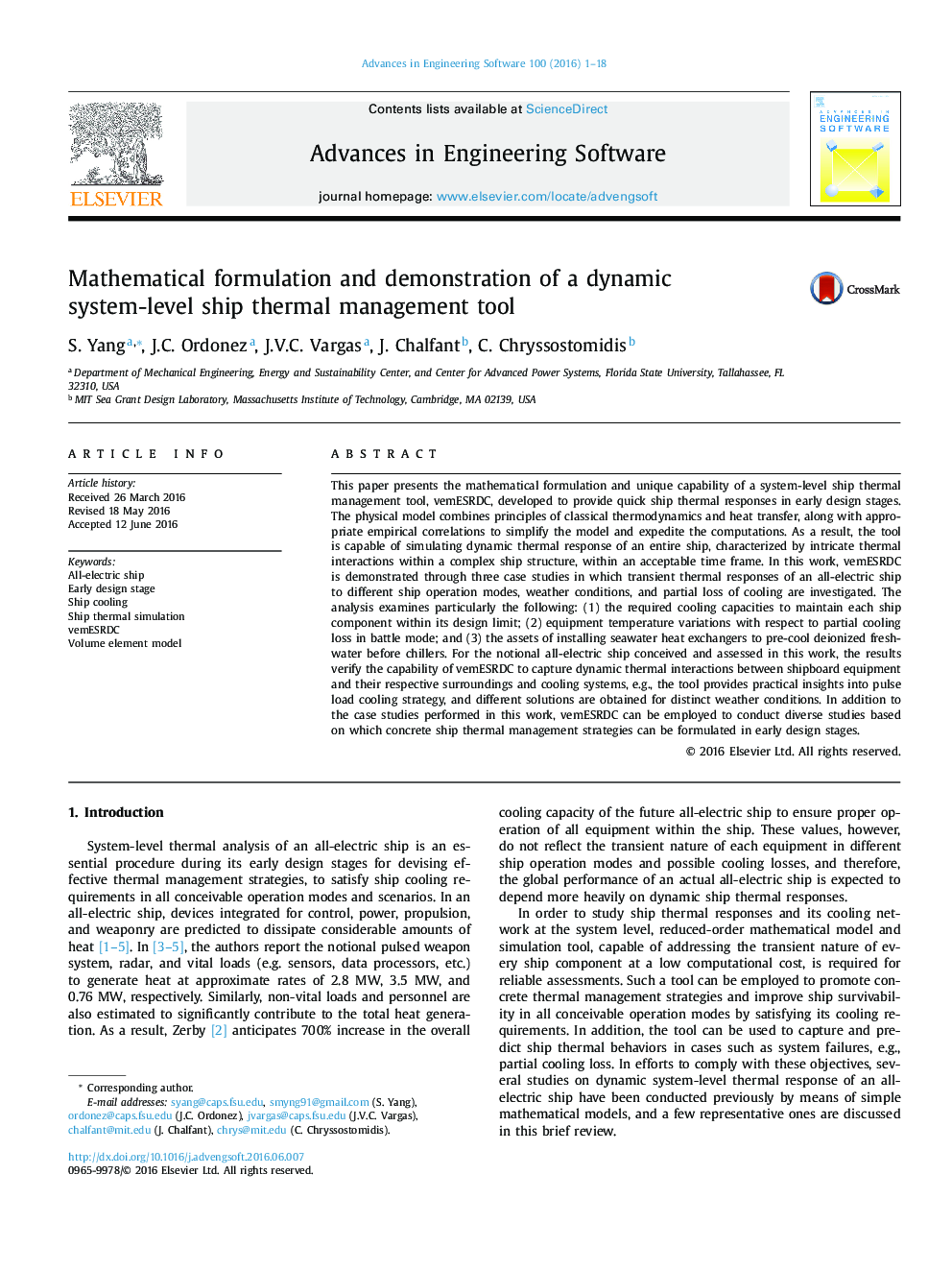| Article ID | Journal | Published Year | Pages | File Type |
|---|---|---|---|---|
| 567063 | Advances in Engineering Software | 2016 | 18 Pages |
•We present the mathematical formulation and the unique capability of vemESRDC.•We use vemESRDC to simulate dynamic thermal response of an entire ship.•Ship subject to different operation modes and partial loss of cooling is simulated.•Ship subject to two distinct weather conditions is simulated.•Results verify the assets of the tool for devising ship cooling strategies.
This paper presents the mathematical formulation and unique capability of a system-level ship thermal management tool, vemESRDC, developed to provide quick ship thermal responses in early design stages. The physical model combines principles of classical thermodynamics and heat transfer, along with appropriate empirical correlations to simplify the model and expedite the computations. As a result, the tool is capable of simulating dynamic thermal response of an entire ship, characterized by intricate thermal interactions within a complex ship structure, within an acceptable time frame. In this work, vemESRDC is demonstrated through three case studies in which transient thermal responses of an all-electric ship to different ship operation modes, weather conditions, and partial loss of cooling are investigated. The analysis examines particularly the following: (1) the required cooling capacities to maintain each ship component within its design limit; (2) equipment temperature variations with respect to partial cooling loss in battle mode; and (3) the assets of installing seawater heat exchangers to pre-cool deionized freshwater before chillers. For the notional all-electric ship conceived and assessed in this work, the results verify the capability of vemESRDC to capture dynamic thermal interactions between shipboard equipment and their respective surroundings and cooling systems, e.g., the tool provides practical insights into pulse load cooling strategy, and different solutions are obtained for distinct weather conditions. In addition to the case studies performed in this work, vemESRDC can be employed to conduct diverse studies based on which concrete ship thermal management strategies can be formulated in early design stages.
